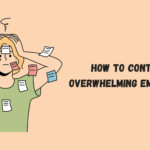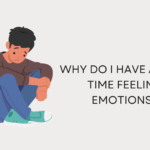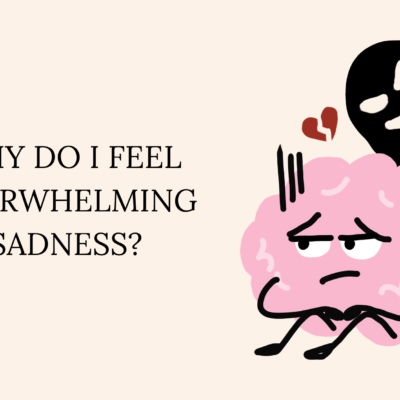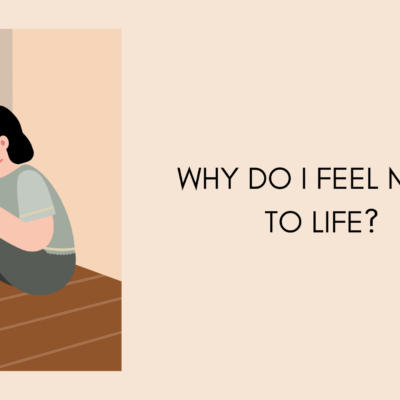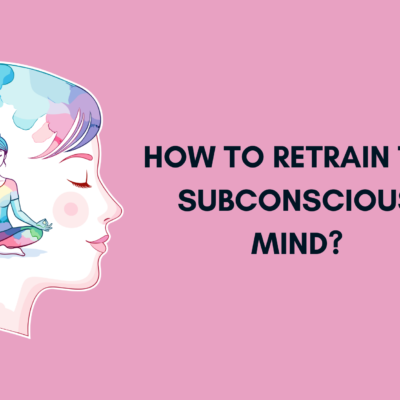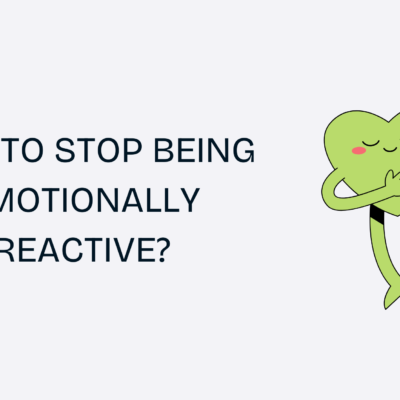How to be Less Emotionally Dependent: Human beings are wired for connection. We all want to love, to be loved, and to feel seen. Relationships—whether with partners, family, or friends—nourish us and give meaning to life. However, there’s a fine line between healthy emotional interdependence and unhealthy emotional dependence.
When your sense of worth, happiness, or stability relies entirely on someone else, you become emotionally dependent. This often leads to anxiety, insecurity, and patterns of clinginess that can strain relationships and leave you feeling powerless. The good news? You can learn to shift from dependence to balance—building strong connections while also standing firmly on your own feet.
This article explores what emotional dependence is, why it develops, and practical steps to help you become more emotionally independent while still valuing healthy relationships.
Also Read:
Understanding Emotional Dependence
Emotional dependence occurs when a person relies excessively on others to meet their emotional needs, often to the point of neglecting their own identity or self-care.
Signs of emotional dependence may include:
- Constantly seeking reassurance and validation.
- Fear of being alone or abandoned.
- Difficulty making decisions without others’ approval.
- Losing your sense of identity in a relationship.
- Intense anxiety when separated from loved ones.
- Neglecting your own needs or interests to please others.
Unlike healthy emotional interdependence—where two people support each other while maintaining individuality—emotional dependence creates imbalance. Instead of sharing love freely, the dependent person clings to it out of fear.
Why Emotional Dependence Develops
Several factors can contribute to emotional dependence:
- Childhood experiences – Overprotective or neglectful parenting can prevent children from developing a secure sense of self.
- Low self-esteem – If you struggle with self-worth, you may seek validation externally.
- Past trauma or abandonment – Previous losses or betrayals can fuel fear of being left again.
- Cultural or societal conditioning – In some environments, dependence on others is encouraged, especially in relationships.
- Lack of coping skills – Not knowing how to manage stress or loneliness alone leads to seeking constant comfort from others.
Understanding the roots of emotional dependence is the first step toward healing.
Why Reducing Emotional Dependence Matters
Learning to be less emotionally dependent doesn’t mean rejecting love or relationships. Instead, it’s about:
- Building self-confidence – You feel more secure in who you are.
- Creating healthier relationships – Love is shared freely, not clung to out of fear.
- Reducing anxiety – You no longer panic at the thought of being alone.
- Improving decision-making – You trust yourself more.
- Living authentically – You pursue interests, dreams, and values without relying on others’ approval.
Steps to Become Less Emotionally Dependent
Developing emotional independence is a gradual process. Here are practical strategies to help you on the journey:
1. Cultivate Self-Awareness
The first step is noticing patterns of dependence.
- Ask yourself: Do I constantly seek reassurance? Do I avoid being alone? Do I feel empty without others?
- Keep a journal: Write about situations where you felt dependent and what triggered those feelings.
- Recognize emotional triggers: Awareness helps you respond rather than react.
Why it matters: Self-awareness brings clarity, allowing you to see where changes are needed.
2. Build a Strong Sense of Self
Developing a clear identity reduces reliance on others.
- Explore hobbies and passions that interest you.
- Define your personal values and goals.
- Spend time discovering what makes you feel fulfilled apart from relationships.
Tip: Make a list of qualities you love about yourself that are independent of others’ opinions.
3. Strengthen Self-Esteem
Low self-worth often drives dependence. Boosting self-esteem helps you stand on your own.
- Practice positive affirmations: Replace self-criticism with empowering statements.
- Celebrate small achievements: Acknowledge progress instead of dismissing it.
- Avoid comparing yourself to others: Focus on your unique path.
Why it matters: When you value yourself, you no longer need constant external validation.
4. Learn to Tolerate Being Alone
Many people fear solitude because it feels like abandonment. But time alone is essential for independence.
- Start small: Spend 10–15 minutes daily in solitude without distractions.
- Engage in solo activities: Go for a walk, cook, or read on your own.
- Practice mindfulness: Learn to enjoy your own company without needing constant external stimulation.
Why it matters: When you can find peace in solitude, relationships become a choice, not a necessity.
5. Set Healthy Boundaries
Without boundaries, dependence grows because you prioritize others’ needs over your own.
- Learn to say “no” without guilt.
- Protect your time and energy.
- Identify when relationships feel draining rather than supportive.
Why it matters: Boundaries protect your individuality while still allowing for healthy connection.
6. Develop Emotional Regulation Skills
Instead of relying on others to calm you down, learn to manage your emotions.
- Practice breathing exercises when overwhelmed.
- Use grounding techniques like the 5-4-3-2-1 method to return to the present.
- Journal your emotions to process them independently.
Why it matters: Self-regulation prevents panic or clinginess in relationships.
7. Nurture a Support System (Without Overdependence)
Emotional independence doesn’t mean isolation. Instead, build a balanced support system.
- Connect with friends, family, or mentors.
- Diversify your sources of support rather than relying on one person.
- Engage in group activities that foster community without dependency.
Why it matters: A broad network reduces pressure on one relationship to meet all your needs.
8. Focus on Personal Growth
Independence grows when you keep evolving.
- Pursue education, career, or creative goals.
- Take up challenges that push you outside your comfort zone.
- Invest in self-care—physical, mental, and spiritual.
Why it matters: The more you grow, the less you rely on others for identity or purpose.
9. Reframe Relationships as Partnerships, Not Lifelines
Shift your mindset about love and relationships.
- See relationships as complementary, not defining.
- Recognize that your partner or friend adds to your life—they are not your entire life.
- Practice giving love freely rather than clinging out of fear.
Why it matters: This shift fosters healthier, more balanced relationships.
10. Seek Professional Guidance When Needed
If emotional dependence feels overwhelming, therapy can help.
- Cognitive Behavioral Therapy (CBT) can address unhelpful thought patterns.
- Inner-child work helps heal past wounds fueling dependency.
- Relationship counseling can reset unhealthy dynamics.
Why it matters: Professional support accelerates healing and independence.
Common Pitfalls to Avoid
As you work on reducing emotional dependence, beware of these traps:
- Confusing independence with isolation – Emotional independence doesn’t mean pushing people away; it’s about balance.
- Expecting overnight change – Breaking dependency patterns takes time and patience.
- Swinging to emotional avoidance – Avoiding intimacy altogether is not the goal; learning interdependence is.
- Neglecting vulnerability – Emotional independence doesn’t mean shutting down feelings—it means expressing them without losing yourself.
Real-Life Example
Consider Anna, who constantly sought reassurance from her partner. She panicked whenever he didn’t text back immediately, feeling unwanted and insecure. Through therapy, journaling, and practicing time alone, Anna began to discover her own passions—painting, hiking, and volunteering. As she built her identity and confidence, her relationship improved. She no longer clung to her partner for validation, and he appreciated the space and freedom, making their bond stronger.
This story shows that emotional independence doesn’t weaken love—it strengthens it.
Daily Practices to Reinforce Independence
- Morning affirmations: Start the day with statements like, “I am enough as I am.”
- Solo check-ins: Ask yourself, “How do I feel today? What do I need?”
- Gratitude journaling: Focus on what you give yourself rather than only what others provide.
- Mindful self-care: Engage in daily rituals that nurture your well-being.
- Weekly solitude practice: Dedicate time to being alone and enjoying it.
Conclusion
Being less emotionally dependent is not about closing yourself off from love—it’s about creating a foundation of strength, confidence, and self-worth that allows you to love more freely. Emotional independence means knowing that while relationships enrich your life, they do not define your existence.
By cultivating self-awareness, building self-esteem, embracing solitude, setting boundaries, and focusing on personal growth, you can transform dependency into balance. Relationships then become healthier, more fulfilling, and rooted in genuine choice rather than fear.
Ultimately, emotional independence is a gift—not just to yourself but also to those you love. It allows you to stand tall as an individual while embracing connection as a conscious, empowered choice.

